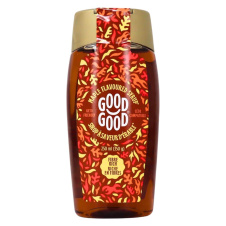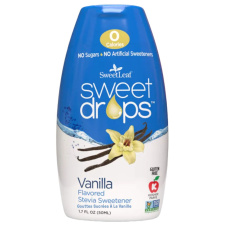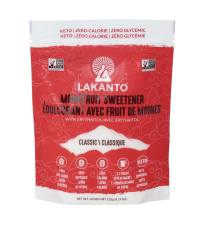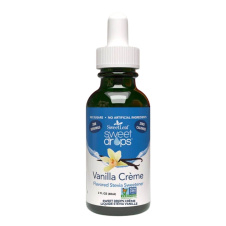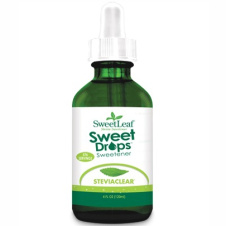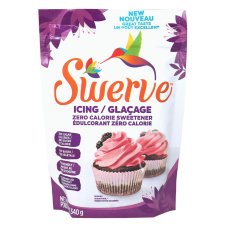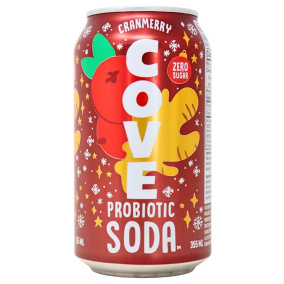
Best Sugar Substitutes: Natural and Artificial Sweeteners
Sugar substitutes or sugar, which one is best? You may have heard that your loved ones ditched sugar and switched over to a sugar substitute, so, should you? As disease rises, the usage of sugar substitutes rises coherently, meaning more and more types of sugar substitutes are available on the market. But not all sugar substitutes are made equally. In fact, some sugar substitutes can do more harm than good, so it’s important to stay informed and choose the right one for you. Keep reading to find out which sugar substitute is best for you!
What is Sugar?
Sugar is the world’s most popular sweetener. By definition, sugar refers to anything (natural or artificial) made of sucrose, extracted from a sugar cane or sugar beets. Sugar comes in many different varieties such as table sugar, caster sugar, confectioner’s sugar, brown sugar and more. But, did you know that there are over 50 names for sugar? It’s true, this powerful substance hides in many names including and not limited to sucrose, dextrose, maltose, fruit juice and so on.
What are Sugar Substitutes?
There are many ways to describe sugar substitutes, but for discussion’s sake we will define a sugar substitute as anything (natural or artificial) that is not made of sucrose extracted from a sugar cane or sugar beets. There are natural sugar substitutes that you may already have in your pantry like honey and maple syrup, and other artificial sugar substitutes that you may have never even heard about, like monk fruit sweeteners and erythritol.
Both natural sugar substitutes and artificial sugar substitutes perform the same function as sugar--sweetening. However, there seems to be some debate as to which one is better for our health. So, before we can make an informed decision, this is what you need to know:
Artificial sweeteners are a mix of chemicals that resemble sugar. Artificial sweeteners are often much sweeter than regular sugar and are typically low-calorie or calorie-free. Unlike sugar, artificial sweeteners are not typically processed by our bodies. In contrast, natural sweeteners are slightly less unprocessed versions of table sugar, such as honey or agave. In regards to nutritional value, natural sweeteners have slightly more nutrients than regular table sugar and provide approximately the same caloric value as table sugar. Like sugar, natural sweeteners are broken down by our body and if eaten in excess it is stored as fat.
Types of Sugar Substitutes
Both natural and artificial sweeteners come in many shapes, forms and packages. However, natural sweeteners are more easily available than artificial sugar substitutes. Common natural sweeteners include honey, maple syrup, agave, molasses, dates, and coconut sugar. There are also other sugar substitutes that involve fruit or plant extracts which may be considered natural like stevia, erythritol or monk fruit extract. However, when placed under the microscope, these products resemble artificial sweeteners more than natural sweeteners. Now when it comes to artificial sweeteners, it gets a little more complicated. Although listed under many names, common artificial sweeteners that we will cover today include stevia, aspartame, sucralose, erythritol, Acesulfame K, and monk fruit. Since each of these artificial sugar substitutes slightly differ in chemical composition, we’ll need to take a closer look at each of these.
Stevia
Stevia comes from the Stevia plant in South America. The Stevia you see in products comes from F.D.A.(Food Drug Administration) regulated purified stevia extracts. Stevia is approximately 300 times sweeter than sugar, so you’ll need less of it to achieve the same amount of sweetness. Stevia is an excellent substitute for baking as it is highly resistant to high temperatures. As of now, the F.D.A. considers Stevia to be safe to consume for everyone, including children, pregnant and breastfeeding females. Contrary to popular belief, Stevia sweeteners do not raise blood sugar levels and are low in carbohydrates, making it a great option for those with diabetes. Additionally, Stevia does not appear to live up to the myth of making us hungrier or affecting our gut microbiome. In fact, Stevia may suppress appetite and cause you to eat less.
Aspartame
Aspartame is a sweetener that has been around for some time. Aspartame is a combination of two amino acids and is approximately 200 times sweeter than sugar. When consumed it is broken down into individual amino acids and taken up to make proteins. You can find Aspartame in everything from food to medicine. However, Aspartame is not great for baking as it can lose its sweetness with high temperatures. Overall, the F.D.A has recognized Aspartame as safe to consume for all populations since 1981. Like Stevia, Aspartame has no effect on blood sugar levels and may contribute to diabetes management. It also does not affect our hunger cues and may cause you to eat less sweets. With regards to the gut microbiome, it appears as if Aspartame may not reach the gut microbiome as amino acids don’t travel that far. From what we know at this time, Aspartame does not affect our gut microbiome. Additionally, since Aspartame is broken down into particles that our body is already familiar with, there appears to be no side-effects related to consumption of Aspartame.
Sucralose
Sucralose is sugar’s calorie and carbohydrate-free twin. To make sucralose you start with the table sugar molecule and apply some changes to its structure to make it calorie-free! However, this chemical adjustment makes Sucralose 600 times sweeter than sugar. Once it is in the body, our bodies are unable to break down the Sucralose, so it just gets rid of it. You can often spot sucralose in products like chewing gum, canned fruits, syrups, condiments and baked goods. Sucralose can withstand high baking temperatures so feel free to add it to your latest creation. Similar to the other sweeteners that we’ve discussed above, sucralose is safe to consume for everyone and it does not raise blood sugar levels nor induce hunger. Like Aspartame, sucralose is not broken down in the gut and is unlikely to affect the gut microbiome.
Erythritol
Erythritol is a sweetener that due to its origin, some consider to be a natural sugar substitute. Foods like corn, watermelon, cornstarch, fermented cheese and even wine are natural sources of Erythritol. To make Erythritol you’ll need to extract it from one of the sources mentioned above. However, Erythritol is slightly different from the sweeteners we’ve previously discussed. To begin with Erythritol is not as sweet as sugar, it is approximately 60-80% as sweet. It is also classified as a carbohydrate, but since it is a sugar alcohol, it does not contribute to the net carb intake. Unlike the other sweeteners, it is able to contribute to both the sweetness and structure of products, and prevent browning and dryness.
Overall, erythritol is safe to consume for all populations.and it will not spike your blood sugar nor are there any indications that it can affect your hunger levels or microbiome at this time. Erythritol is absorbed in the small intestine, but it is not metabolized so it is eliminated. Unlike sugary foods, erythritol can prevent cavity formation and may contribute to oral health by preventing the formation of tooth-decaying bacteria and the breakdown of enamel. However, when eaten in large amounts, sugar alcohols, like Erythritol, can have a laxative effect. But, Erythritol is well tolerated by the body, so it is unlikely.
Acesulfame-K
Acesulfame-K is another sweetener that has been around for some time too. It was first approved by the F.D.A in 1988 for all populations and it has likely made its way into your food one way or another. Acesulfame-K consists of a combination of a naturally produced acid and potassium; It is approximately 200 times sweeter than sugar. Not only is it a sweetener, but it is also sometimes added as a flavour preservative and enhancer. It is a good sweetener for baking and cooking as it can withstand high temperatures and acidic conditions. Acesulfame-K is good for diabetes management and for preventing tooth decay. In general, Acesulfame-K has no side-effects that you should be worried about.
Monk Fruit
Similar to natural sweeteners, Monk fruit sugar substitutes come from the juice of the Chinese Monk fruit. Like all the other sugar substitutes mentioned above, monk fruit sugar substitute is safe to consume, however at this time, it is not approved for commercial product production in Canada, only tabletop usage is permitted. Monk Fruit sugar substitute is about 200 times sweeter than sugar and stable enough for baking. Monk Fruit sweetener is not absorbed by the body so it does not add any calories to our diet. It also does not provoke hunger, nor affect our microbiome or our blood sugar levels.
What are the Benefits of Sugar Substitutes?
Now that you’re practically a next level expert on the basics, you’re ready to learn about the health benefits of sugar substitutes! To begin with, sugar substitutes may aid with weight loss. As most of these sugar substitutes have virtually no calories, swapping your sugar with these sugar substitutes may decrease your total calorie intake, allowing you to lose weight more easily. Additionally, you may have an easier time sticking to your diet if you’re able to indulge in a lower-calorie sweet treat made with a sugar substitute from time to time. Baking sweet treats with a zero-calorie or low-calorie sugar substitute can help soothe your cravings while keeping you in a caloric deficit. Sugar substitutes may also contribute to your oral health and prevent sugar-attributed conditions like cavities. Sugar substitutes are also full of fibre and low in carbs which can aid with glycemic control and make life more enjoyable for those with diabetes. Additionally, if you’re following a keto diet, you won’t have to worry much about sugar substitutes adding on to your carb count.
What are the Cons of Sugar Substitutes?
At this time, there aren’t many cons to using sugar substitutes. However, it is important to understand that although sugar substitutes have their benefits, like sugar, sugar substitutes should be consumed in moderation.
How Do I Use a Sugar Substitute?
Many sugar substitutes are available at a 1:1 ratio, meaning that you can use the same amount as regular table sugar. However, as seasoned vets in the sugar substitute department, we recommend that if you choose to use an artificial sweetener, you should slightly reduce the amount as artificial sweeteners are often sweeter than table sugar. Additionally, if you’re a newbie to the artificial sweetener world, you might want to avoid any raw consumption; Unlike sugar, artificial sweeteners can be very bitter on their own. Similarly, some natural sweeteners like agave or molasses, can also be more bitter than regular table sugar, so you might have to alter your recipe a little bit. When starting off with sugar substitutes, it is best to add a little bit at a time and try a little bit of your product (if it is safe to do so). Once you become more familiar with the products, you’ll be able to estimate how much you’ll need to get just the right amount of sweetness.
The Final Verdict
At this time, there is no reason to believe that sugar substitutes are bad for your body. Using sugar substitutes can have its advantages, such as reduced calorie consumption and improved oral health. However, since sugar substitutes are typically in sweet foods, it should be consumed in moderation. Whether table, natural or artificial sugar, sugar does not provide many nutrients for your body. Instead, fill your diet with balanced meals, and treat yourself to a naturally or artificially sweetened drink, snack or dessert! After all, you’re already sweet enough!



